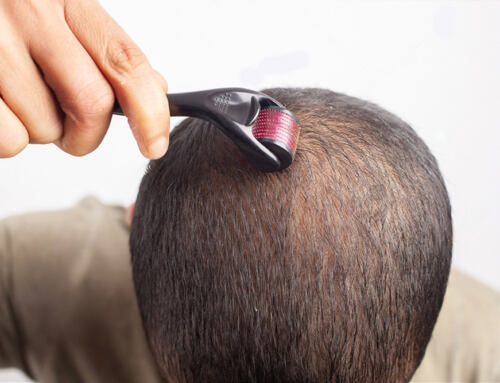There is usually a way to fight dandruff’s itching and flaking. The first step to treating mild dandruff is to cleanse your hair regularly with a gentle shampoo to help reduce the buildup of oil and skin cells. Medicated dandruff shampoo may help if that doesn’t work. When necessary, regular shampooing can be combined with medicated shampoo use two to three times a week. Those with drier hair should shampoo less frequently and use a conditioner that moisturizes the scalp and hair.
Solutions, foams, gels, sprays, ointments, and oils are available as medicated and non medicated products for hair and scalp. To find a routine that works for you, you may need to try more than one product. It is always wise to consult a hair specialist if you’re overwhelmed by the volume of products and advice out there.
Additionally, if a product causes you to itch or sting, stop using it right away. A rash, hives, or difficulty breathing may indicate an allergic reaction, which should be addressed immediately. Shampoo for dandruff is classified by what medication it contains. It may be helpful to alternate between two types of shampoo if one type works for a while but then loses its effectiveness. As soon as your dandruff is under control, go about using medicated shampoo on a less frequent basis to maintain and prevent it.
Ensure that you read and follow the directions on every bottle of shampoo you use. Depending on the product, you may need to leave it on for a few minutes or you may need to rinse it off right away. Talk to your doctor or dermatologist if you are still experiencing dandruff after using medicated shampoo.
Lifestyle Changes & Remedies to Cure Dandruff Permanently
While there are several medicated ways to treat dandruff there are numerous other paths that can be taken up to deal with dandruff permanently. If you suffer from dandruff, try the following steps to reduce or control its development:
● Stress management: Several conditions and diseases can be exacerbated by stress, causing your health to decline. Dandruff can even be triggered or worsened by it. Hence, it is integral to ensure that stress levels are maintained.
● Maintain a healthy diet: It may be possible to prevent dandruff and hair loss with a diet high in zinc, B vitamins, and certain kinds of fats. A well-balanced meal with the right nutrients can be extremely beneficial even while dealing with dandruff.
● Choose a hair routine that suits you: Shampooing daily may prevent dandruff if your scalp tends to be oily. Using gentle strokes, massage your scalp to loosen flakes. Make sure you rinse well. Shampoo less frequently and condition your scalp between washes if your hair tends to be dry and sensitive. Find the best routine for your hair through some trial and error. If you’re still feeling unsure get in touch with a hair specialist to chart out a hair regimen tailored for you.
● Make sure you get enough sun: Getting enough sunlight may help control dandruff. Sunbathing, however, increases your risk of skin cancer because ultraviolet light damages your skin. Consider spending some time outdoors instead. Ensure that your face and body are protected with sunscreen.
● Limit hair-styling products: It is possible for hair-styling products to build up on your hair and scalp, causing them to become oilier. While using hair-styling products make sure to proceed with caution!
Dandruff Treatment: When to See a Doctor
If you continue to scratch and shed after trying over-the-counter preparations, consult your doctor. A prescription shampoo or topical medication may be necessary for really stubborn cases of dandruff.
Dr. Shahid Shamsher is one of India’s first certified Trichologist practicing in the field of Trichology for 27 years and is recognized as one of the Best Hair Doctor in Bangalore. He is the only Trichologist in India to be simultaneously certified from the U.K, Australia, and India.









Leave A Comment